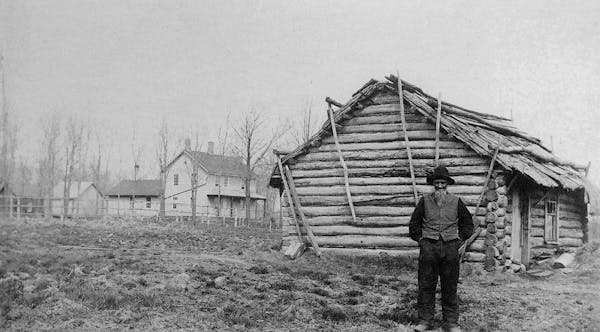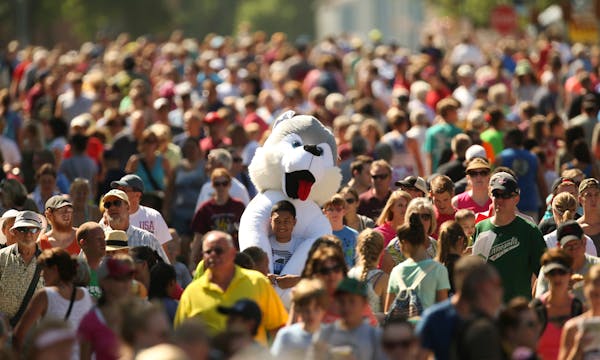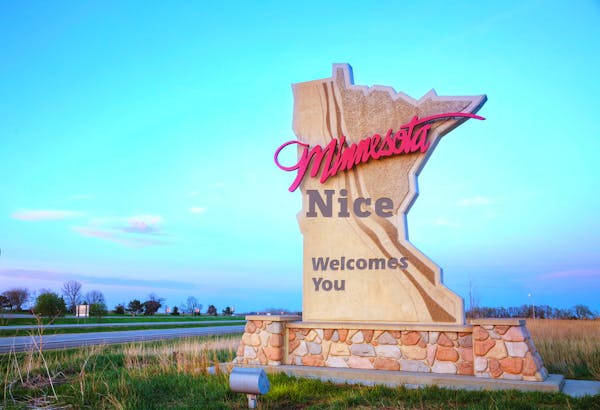Why are felons in Minnesota stripped of their voting rights?
Listen and subscribe to our podcast: Via Apple Podcasts | Spotify | Stitcher
Jennifer Schroeder can't escape her past — at least not until 2053.
A nonviolent drug offense in Wright County landed her a 40-year probation sentence that won't expire until she's 71.
The felony conviction is a "death sentence," she testified last month at the state's Sentencing Guidelines Commission. For the majority of her adult life, she'll be prohibited from voting, owning a firearm or traveling abroad.
A growing national movement to restore voting rights for felons prompted one reader to turn to Curious Minnesota, the Star Tribune's community-driven reporting project, to ask: Why are felons stripped of their voting rights, and what other rights do they lose when convicted?
Minnesota passed disenfranchisement of felons with statehood in 1858, but the practice didn't become commonplace nationally until after the Civil War — when newly emancipated African-Americans gained the right to vote.
Chris Uggen, a criminologist at the University of Minnesota who studies felon voting bans, said it's difficult to untangle race from a punishment that continues to disproportionately impact black and Indigenous people.
Black Americans are four times likelier to lose voting privileges compared with the rest of the adult population, according to the Sentencing Project. And in parts of the south, more than one in five black adults is disenfranchised.
"This practice definitely dilutes the votes of communities of color," Uggen said.
Despite constitutional challenges, those laws remained on the books in the vast majority of the country.
Today, an estimated 6 million Americans are blocked from the ballot box because of a felony conviction. But restrictions vary greatly by state. And depending on the crime, felons are also barred from holding public office, traveling internationally, retaining medical licenses or ever owning a firearm.
"It's fairly unusual across the globe for collateral sanctions to be as broad as they are in the United States and to affect so many people," Uggen said.
Minnesota is one of 18 states where felons may not vote until they complete post-incarceration supervision, such as probation or parole. Others, like Michigan and Indiana, automatically restore those rights upon release from prison. (The Minnesota Sentencing Guidelines Commission on Thursday approved a 5-year cap on felony probation lengths in most circumstances. However, the guidelines are not retroactive.)
Only Maine and Vermont place no restrictions on felons and allow them to vote while actively incarcerated.
But public opinion is shifting in favor of reforms, Uggen said, and recent polls suggest that at least 60% now support the immediate renewal of voting rights upon a prisoner's release.
"The logic of probation and parole is that the criminal justice system has decided that you're fit to be in the community," he said. "The logic in denying the vote at that point doesn't make as much sense to the average American."
Last fall, the American Civil Liberties Union filed a lawsuit against the state of Minnesota to restore voting rights to those who have already served their time or were sentenced to probation rather than incarceration.
The case is pending, but advocates have found a key supporter in Minnesota Corrections Commissioner Paul Schnell.
"These are, for the most part, competent people who have paid their dues," Schnell said. "Why not give people a chance to see their voice matters? ... What makes us safer is having people be engaged."
---
If you'd like to submit a Curious Minnesota question, fill out the form below:
Read more Curious Minnesota stories:
Why do we have water towers and what do they do?
Who are all the people on sidelines during Vikings games?
Why isn't it a crime to punch someone in the face in pro hockey?
Why does the Stone Arch Bridge cross the river at such an odd angle?
How did Minnesota become the Gopher State?
Are roundabouts really safer than traditional intersections?
What is the best place, time to see northern lights in Minnesota?
Has Minnesota every had a major earthquake?



